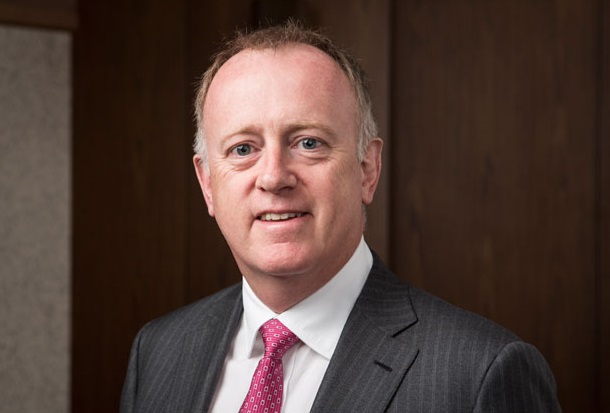Re/insurance companies risk becoming irrelevant in the eyes of their customers if they decide to carry on with a ‘business as usual’ approach, despite the many challenges that face the industry today.
 This is according to John Neal, Chief Executive Officer (CEO) of insurance and reinsurance marketplace Lloyd’s of London, who spoke about the new Future at Lloyd’s strategy in London yesterday at a conference run by AM Best.
This is according to John Neal, Chief Executive Officer (CEO) of insurance and reinsurance marketplace Lloyd’s of London, who spoke about the new Future at Lloyd’s strategy in London yesterday at a conference run by AM Best.
Providing some context for the new approach at Lloyd’s, Neal told conference attendees that the re/insurance industry faces “a pretty uncomfortable truth” at the moment.
“Even though our customers are facing greater and more challenging risks, the simple reality is that – if you take a 10 to 15 year view to property and casualty – insurance penetration is absolutely falling, and falling quite significantly,” Neal said.
The Lloyd’s CEO argued that re/insurers have not reacted quickly enough to the changing risk landscape, particularly in terms of newer types of risks, such as liabilities related to intangible assets.
He also suggested that the industry had made itself difficult for capital to invest in, despite the attractive lack of correlation between insurance and other financial investments interests.
“The third factor that we think about quite deeply is the cost of doing business,” Neal said, noting that the typical costs of distribution administrative costs is 30%, and as high as 40% at Lloyd’s.
“If it wasn’t for regulation we would have been very, very heavily disrupted by now,” he stated.
“The overarching message here is pretty clear,” Neal continued. “If we think just carrying on with business as usual is going to work for us then we risk becoming irrelevant in the eyes of our customers. We can either see decreasing value in the products and services that we provide or alternatively we can change and realize what we think is a very, very significant opportunity.”
This, Neal explained, is the motivation behind the performance drive that he has helped to implement at Lloyd’s since taking over as head of the organisation in October 2018.
The new Future at Lloyd’s strategy has aimed to bring about a turn-around for the worst performing syndicates at Lloyd’s, while promoting more innovation and inclusivity in the marketplace.
“Ultimately, our objective is to get the world’s marketplace back to what we think is a market leading – if not a globally leading – performance, after a couple of years of some pretty challenging results,” Neal told the conference audience.
However, Neal added that the challenges he outlined were not unique to Lloyd’s, and suggested that the P&C re/insurance sector in particular may have to fundamentally readjust its mindset after the events of the past two years.
Neal claimed that the re/insurance market had “changed forever” after the 2008 financial crisis, but said that the market had become complacent in the years since, partly due to the lack of major loss activity between Superstorm Sandy and Hurricanes Harvey, Irma and Maria in 2017, which in fact constituted the quietist period globally for catastrophe insurance for 180 years.
“People really weren’t making money during that period, even when they thought they were,” he explained. “So any sense that a return to an alternate price or a different cycle would pull them out of the problems they found themselves in is simply not going to happen.”
“And even when we’re beginning to see price increase this year, the reality is the insurance pricing cycle has changed forever,” he continued. “If your strategy for good performance is we’ll wait until the good times return, that’s simply not going to work. So we felt that we therefore had to take decisive action, not passively wait for things to change around us.”


